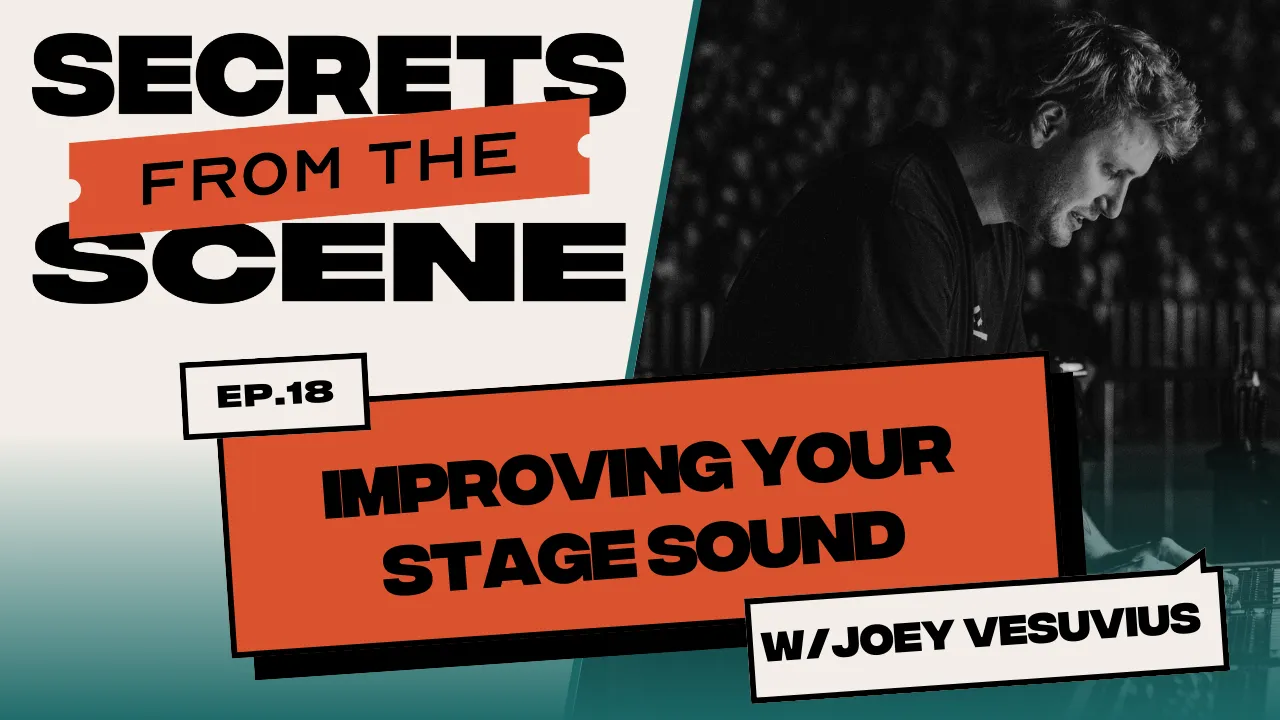Show Notes
Think back to the last show you were at that had absolutely great sound. It makes for such an amazing experience, right? Now think of the last show you attended or performed at where the sound was not so good, maybe even awful. It can completely ruin the moment.
Unfortunately, dealing with bad sound is a sad reality all local musicians face at one point or another. Sometimes it simply can't be avoided - the room or venue you're playing in has terrible acoustics, the PA is half broken, or the sound engineer working that night is hungover and unwilling to help.
But what if I told you that there are some simple tricks to help you improve the things you have control over? In the event that you find yourself in a bad-sounding space without a pro engineer like my guest, they just might be your saving grace.
On this week's episode, Joey Vesuvius joins us to talk about all things live sound. Joey is an accomplished audio engineer, having toured with the likes of Keshi, Mike., and JPEGMAFIA. Joey has also mixed front-of-house in stadiums and at festivals as large as Coachella.
We discussed the basics of getting the most out of your soundcheck, from setup to communicating with your engineer, to mindset and attitude when things aren't ideal. Joey drops a ton of great insights throughout our conversation that will be particularly helpful if you've been struggling with having a successful soundcheck.
We also talk about Joey's career path into the live sound industry, hear one CRAZY touring story involving a stolen 18-wheeler, and get great overall advice about the importance of reflection and constructive self-talk. Whether you're in need of some soundcheck help or curious about the world of a touring sound engineer, this episode has a little something for you.
watch now on YouTube:
Episode Links and Mentions
Connect with the Guest
Connect with Me
Give Feedback
📬 Send me a message: stephen@secretsfromthescene.com
💬 Suggest a guest or topic: podcast@secretsfromthescene.com
🎙️ Brought to you by:
--------------------------------
Thank You
This podcast is made possible by the hard work, expertise, and commitment of my team:
Max Greene and Joey Biehn. I'm forever grateful.
--------------------------------
Theme Music: "Thankful" Courtesy of LUEDVIG

